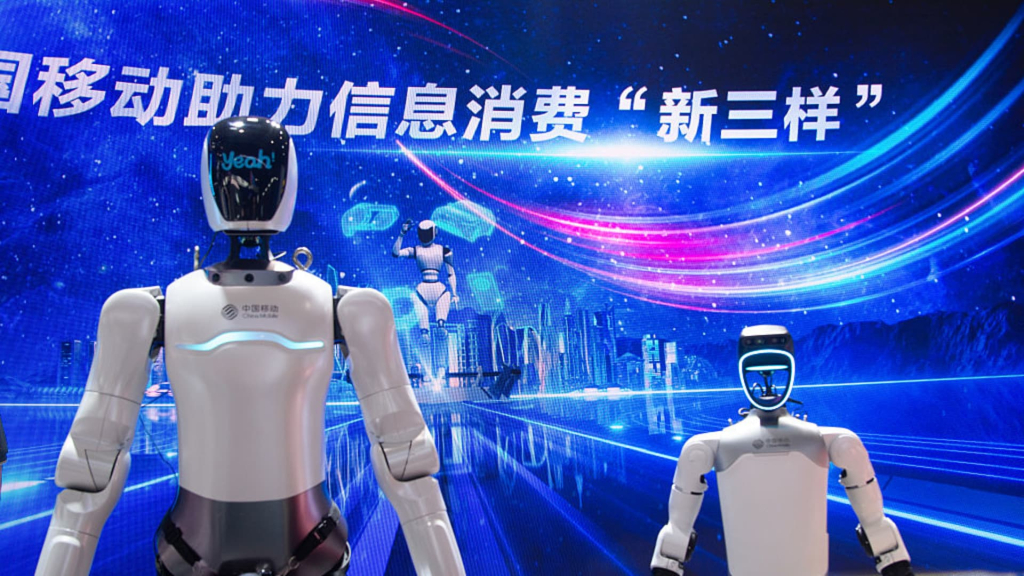The firm’s projections have led them to upgrade two companies identified as Chinese suppliers for Tesla, while maintaining an overweight rating on another supplier. This optimism is grounded in expectations that these businesses will capitalize on the anticipated demand for humanoid technology, akin to the way auto parts firms profited from the boom in electric and smart vehicles. Notably, Sanhua, one such supplier, is set to debut on the Hong Kong stock exchange on Monday, complementing its existing listing in Shenzhen.
Currently, automakers like Tesla and Xpeng are actively developing humanoid robots, with others such as Zeekr and Volkswagen exploring the integration of humanoids into their operations. According to Morgan Stanley, auto parts suppliers could potentially access 47% to 60% of expenditures related to components and materials for humanoid robots, which translates to an estimated $15,000 representing 60% of the total costs to produce each unit. The firm’s analysis indicates that components like screws and bearings, not typically associated with automotive manufacturing, position machinery companies favorably as suppliers in this new market.
Morgan Stanley predicts that by 2050, the humanoid robotics sector will be valued at approximately $800 billion in China and an astounding $5 trillion globally. Given the nascent state of this field, the analysts favor “tier-1” module assemblers, such as Sanhua, which are more likely to secure assembly contracts regardless of evolving technological directions. This stance contrasts with “tier-2” component makers focused on lidar or chip production.
The report also highlights three recommended companies within this sector, all of which trade on mainland Chinese exchanges. Firstly, Tuopu, which manufactures actuators to facilitate mechanical movement both in vehicles and humanoid robots, has received a price target of 63 yuan—representing an upside of nearly 39% from its recent trading close. Although Morgan Stanley adjusted its expectations for Tuopu downward due to reduced Tesla orders, it maintained a positive outlook, anticipating that the company can provide actuator models and dexterous hand components for humanoids. The firm estimates a growing market for actuator modules, predicting a 57% annual increase through 2030.
Secondly, Sanhua has been assigned a target price of 30 yuan, indicating a 20% increase potential from last week’s close. The firm upgraded Sanhua from equal weight to overweight status based on stronger-than-expected revenue projections for 2025 and an anticipated rise in electric vehicle adoption. Analysts noted that a gain of 10 percentage points in global market share for humanoid actuator modules by 2030 could yield an additional revenue generation for Sanhua amounting to 11% of its total revenue in 2024. To mitigate geopolitical risks, the company has been establishing a new manufacturing facility in Thailand, expected to become operational by the third quarter of 2025.
Lastly, Xusheng has received a price target of 12 yuan, with shares closing at 12.08 yuan on Friday. After upgrading Xusheng’s outlook to equal weight from underweight, analysts anticipate a modest recovery in revenues as automaker Li Auto rolls out new battery-powered vehicles. They caution, however, that Xusheng could face lower than expected revenues from major clients like Tesla. Xusheng’s capabilities include providing casting and structural torso components for humanoid robots.
There remains uncertainty about how readily auto parts suppliers can pivot to producing humanoid components. The trajectory and scale of the humanoid robotics industry are yet to be established, and analysts have indicated potential hurdles due to existing geopolitical tensions, which might compel businesses to consider more expensive international alternatives despite China’s competitive advantages in manufacturing.


























